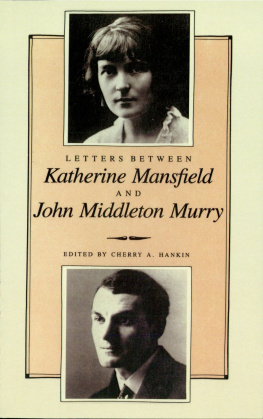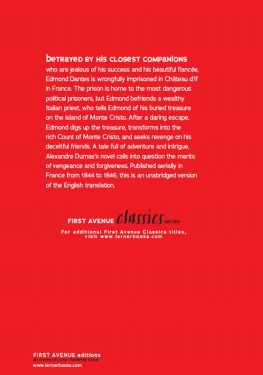CHAPTER I.
Table of Contents
A GENERAL INTRODUCTION
Table of Contents
There have been many erudite works, in French and other languages, describing the antiquities and historical annals of Paris from the earliest times; and in English the mid-Victorian era turned outthere are no other words for itinnumerable books of travel which recounted alleged adventures, strewn here and there with bits of historical lore and anecdotes, none too relevant, and in most cases not of undoubted authenticity.
Of the actual life of the people in the city of light and learning, from the times of Napoleon onward, one has to go to the fountainhead of written records, the acknowledged masterworks in the language of the country itself, the reports and annuaires of various socits, commissions, and what not, and collect therefrom such information as he finds may suit his purpose.
In this manner may be built up a fabric which shall be authentic and proper, varied and, most likely, quite different in its plan, outline, and scope from other works of a similar purport, which may be recalled in connection therewith.
Paris has been rich in topographical historians, and, indeed, in her chroniclers in all departments, and there is no end of relative matter which may be evolved from an intimacy with these sources of supply. In a way, however, this information ought to be supplemented by a personal knowledge on the part of the compiler, which should make localities, distances, and environmentsto say nothing of the actual facts and dates of historyappear as something more than a shrine to be worshipped from afar.
Given, then, these ingredients, with a love of the subject,no less than of the city of its domicile,it has formed a pleasant itinerary in the experiences of the writer of this book to have followed in the footsteps of Dumas pre, through the streets that he knew and loved, taking note meanwhile of such contemporary shadows as were thrown across his path, and such events of importance or significance as blended in with the scheme of the literary life of the times in which he lived, none the less than of those of the characters in his books.
Nearly all the great artists have adored Parispoets, painters, actors, and, above all, novelists.
From which it follows that Paris is the ideal city for the novelist, who, whether he finds his special subjects in her streets or not, must be inspired by this unique fulness and variety of human life. Nearly all the great French novelists have adored Paris. Dumas loved it; Victor Hugo spent years of his time in riding about her streets on omnibuses; Daudet said splendid things of it, and nearly, if not quite, all the great names of the artistic world of France are indissolubly linked with it.
Paris to-day means not La Ville, La Cit, or LUniversit, but the whole triumvirate. Victor Hugo very happily compared the three cities to a little old woman between two handsome, strapping daughters.
It was Beranger who announced his predilection for Paris as a birthplace. Dumas must have felt something of the same emotion, for he early gravitated to the City of Liberty and Equality, in whicheven before the great Revolutionmisfortune was at all times alleviated by sympathy.
From the stones of Paris have been built up many a lordly volumeand many a slight one, for that matterwhich might naturally be presumed to have recounted the last word which may justifiably have been said concerning the various aspects of the life and historic events which have encircled around the city since the beginning of the moyen age.
This is true or not, according as one embraces a wide or a contracted horizon in ones view.
For most books there is, or was at the time of their writing, a reason for being, and so with familiar spots, as with well-worn roads, there is always a new panorama projecting itself before one.
The phenomenal, perennial, and still growing interest in the romances of Dumas the elder is the excuse for the present work, which it is to be hoped is admittedly a good one, however far short of exhaustivenessa much overworked word, by the waythe volume may fall.
It were not possible to produce a complete or exhaustive work on any subject of a historical, topographical or sthetic nature: so why claim it? The last word has not yet been said on Dumas himself, and surely not on Parisno more has it on Pompeii, where they are still finding evidences of a long lost civilization as great as any previously unearthed.
It was only yesterday, too (this is written in the month of March, 1904), that a party of frock-coated and silk-hatted benevolent-looking gentlemen were seen issuing from a manhole in the Universit quartier of Paris. They had been inspecting a newly discovered thermale tablissement of Roman times, which led off one of the newly opened subterranean arteries which abound beneath Paris.
It is said to be a rival of the Roman bath which is enclosed within the walls of the present Muse Cluny, and perhaps the equal in size and splendour of any similar remains extant.
This, then, suggests that in every land new ground, new view-points, and new conditions of life are making possible a record which, to have its utmost value, should be a progressively chronological one.
And after this manner the present volume has been written. There is a fund of material to draw upon, historic fact, pertinent and contemporary side-lights, and, above all, the environment which haloed itself around the personality of Dumas, which lies buried in many a cache which, if not actually inaccessible, is at least not to be found in the usual books of reference.
Perhaps some day even more will have been collected, and a truly satisfying biographical work compiled. If so, it will be the work of some ardent Frenchman of a generation following that in which Alexandre Dumas lived, and not by one of the contemporaries of even his later years. Albert Vandam, perhaps, might have done it as it should have been done; but he did not do so, and so an intimate personal record has been lost.
Paris has ever been written down in the book of man as the city of light, of gaiety, and of a trembling vivacity which has been in turn profligate, riotous, and finally criminal.
All this is perhaps true enough, but no more in degree than in most capitals which have endured so long, and have risen to such greatness.
With Paris it is quantity, with no sacrifice of quality, that has placed it in so preminent a position among great cities, and the life of Parisusing the phrase in its most commonly recognized aspectis accordingly more brilliant or the reverse, as one views it from the boulevards or from the villettes.
DUMAS HOUSE AT VILLERS-COTTERETS
French writers, the novelists in particular, have well known and made use of this; painters and poets, too, have perpetuated it in a manner which has not been applied to any other city in the world.
To realize the conditions of the life of Paris to the full one has to go back to Rousseauperhaps even farther. His observation that









